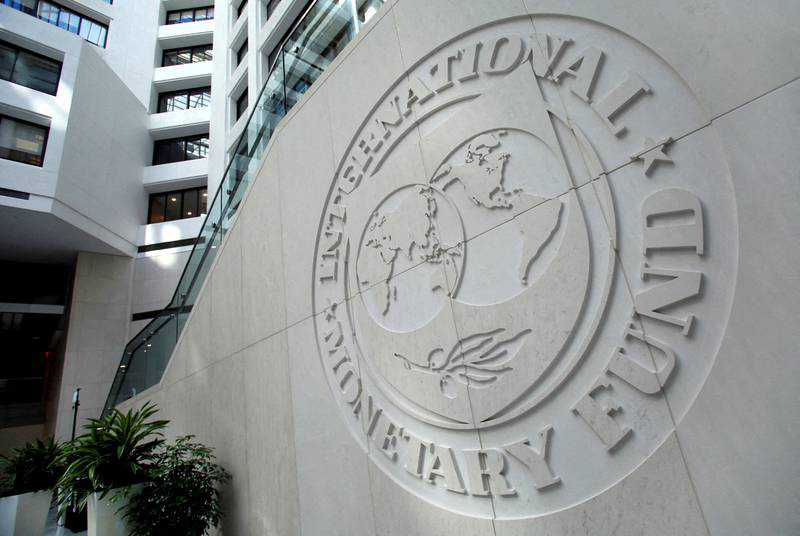IMF set to lower 2022 global growth estimate as Russia-Ukraine war escalates

The International Monetary Fund is expected to lower its global growth projections as the intensifying Russian war in Ukraine looks set to severely dent business and consumer confidence, forcing global trade to contract this year. “We got through a crisis like no other with the pandemic, and we are now in an even more shocking territory,” IMF managing director Kristalina Georgieva told a media roundtable on Thursday. “The unthinkable happened: we have a war in Europe.”
The worsening conflict has had a spillover effect on global economic output, which is expected to lead to a downgrade of the growth forecast when the Washington-based fund presents its World Economic Outlook before its spring meetings next month. “A lot depends on the duration of this war and therefore, consequentially, the severity of the sanctions and how long it lasts,” Ms Georgieva said.
The war could reduce global gross domestic product by as much as 1 per cent by 2023, or about $1 trillion, and add up to 3 per cent to global inflation in 2022 and about 2 percentage points in 2023, according to the UK’s National Institute for Economic and Social Research.
The sharp rise in oil and gas prices will further stoke inflation and crimp growth, putting some of the emerging market economies, with little policy headroom, in a difficult spot.
Even China, which has more room to adjust monetary policy, will not be immune, she said. In broader Asia, there are a number of countries where the "energy price shock is going to be felt" and "that also applies to China”, she said. “They're aiming for 5.5 per cent … [growth and] that may be hard to achieve.”
The war will continue to inflate the prices for commodities such as wheat, corn, metals and fertiliser, and their impact will be felt on real incomes. It will severely dent business and consumer confidence. “When we look at the real economy, clearly we see contraction in trade, but also, a dent [in] consumer confidence and purchasing power,” she said. “It is especially dangerous for families that are living in poverty, for whom food and fuel are the higher proportion of their expenses.”
Russia’s economy will also suffer the consequences of its military aggression in Ukraine amid the co-ordinated punitive action of the US and its allies. “Unprecedented sanctions have led to [the] abrupt contraction of the Russian economy, moving into a deep recession,” Ms Georgieva said. “We are mindful that massive currency depreciation is driving inflation up. It is denting severely the purchasing power and standards of living for a vast majority of the Russian population.”
On Thursday, the Institute of International Finance projected that Russia's economy will shrink 15 per cent this year amid a series of western sanctions, with an economic contraction expected to be twice as severe as the 2009 recession.
“The speed and severity of sanctions imposed on Russia after its invasion of Ukraine [are] remarkable. They have led to a drastic and unprecedented tightening in financial condition,” the IIF said. “Further escalation of the war may bring more boycotts of Russian energy, which would drastically impair Russia’s ability to import goods and services, deepening the recession. Our baseline forecast assumes continued fighting, but not a sharp escalation in the conflict.”
Russia’s economy is wobbling amid tighter sanctions imposed by the US and its allies against Moscow after its military offensive in Ukraine. Russian companies, financial institutions and oligarchs in President Vladimir Putin's inner circle are facing asset freeze by western companies.
Many foreign companies have exited or temporarily suspended operations in Russia. Moscow is now considering nationalising the assets of foreign companies that have severed business ties, a move that is expected to add more pressure on its economy.
The US and UK have already banned Russian crude imports while Europe, which imports more than 40 per cent of its natural gas and 30 per cent of its oil from Russia, has pledged to reduce its reliance on Moscow for its energy needs.
On Friday, Moody's Investors Service downgraded the ratings of 95 non-financial Russian companies cutting Russia’s sovereign deeper into “junk”, or non-investment grade territory, twice in two weeks. The IMF has also raised concerns over Russia’s ability to service its debt, joining a growing number of rating agencies and investors who expect an imminent debt default by Russia. “Well, the Russian default is no more an improbable event,” Ms Georgieva said. “In this case, with Russia, it is not that Russia doesn't have money. Russia cannot use this money.”
The Russian central bank has already put capital control measures in place that are expected to restrict cross-border payments, including debt service on government bonds, according to Moody’s.
Previous Story
- Russia-Ukraine: Is internet on verge of break-up?
- War in Ukraine: McDonald’s, Coca-Cola and Starbucks halt...
- Uniqlo defends decision to stay open in Russia
- Russia blocks Facebook for 146 million citizens amid...
- Ukraine conflict poses increased risk to global economic...
- Russia's invasion of Ukraine leaves global trade in...
- Apple announces halt to all product sales in...
- Russian economy to lose almost 10% annually in...